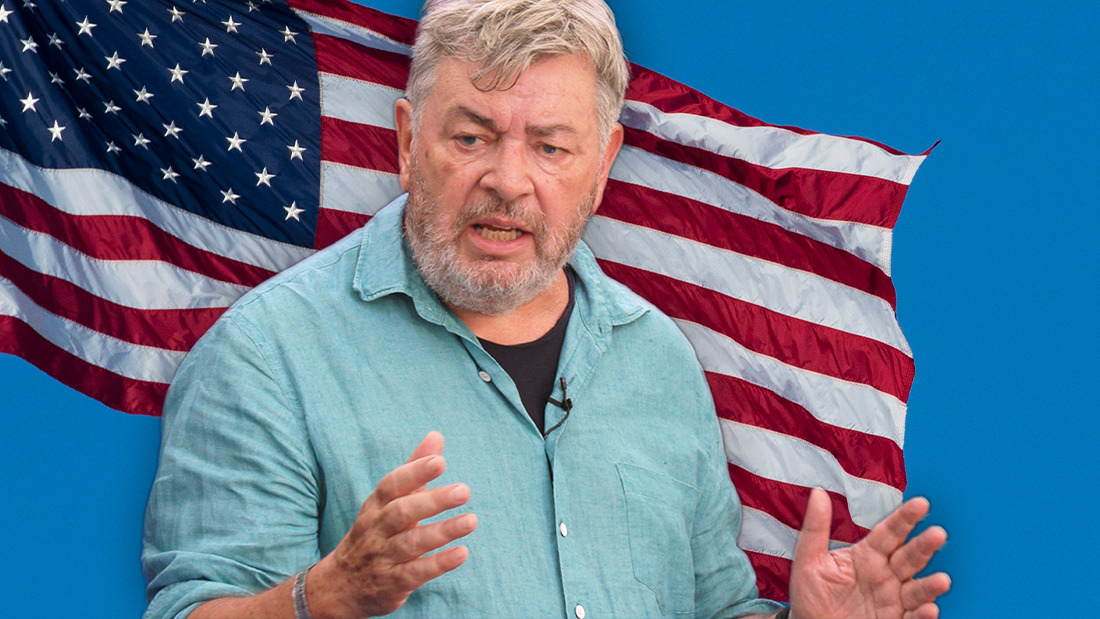The spirit of rebellion stirs. From Musk and Milei wielding chainsaws to Trump hanging his police mugshot outside the Oval Office, populists are embracing rebel aesthetics. Meanwhile, quite different sorts of rebellion against tyranny are intensifying from Myanmar to Serbia. Chilean-born philosopher Pedro Tabenksy, drawing on theorists of rebellion Frantz Fanon and Albert Camus, warns that all rebels—righteous or not—risk becoming the tyrants that they claim to resist if they adopt a cold, utilitarian ethics, indifferent to the suffering their victory requires. To resist this, rebellion must be tempered by regret, even when violence is necessary.
Rebellion is in the air. Elon Musk and Javier Milei wield chainsaws against established institutions like horror movie villains. Trump hangs his glowering police mugshot outside the Oval Office in open defiance of the rule of law. MAGA and populists around the world have wholeheartedly and flamboyantly adopted the seductive aesthetics and attitudes of rebellion. Meanwhile, quite different rebellions of various kinds against tyranny and anti-democratic politics intensify, from Myanmar, Sudan, the Democratic Republic of Congo, Palestine and Israel to Serbia, Georgia and Türkiye.
SUGGESTED VIEWING The rise of the new right With David Aaronovitch
Two of the deepest theorists of rebellion were the twentieth-century intellectuals Frantz Fanon and Albert Camus. The former was a Martinican revolutionary psychiatrist; the latter a French-Algerian Nobel Literature Laureate, playwright, essayist, reporter, and reticent philosopher. They found themselves embroiled in one of the bloodiest anti-colonial wars of the twentieth century, the Algerian War of Independence from France (1954–62). Fanon joined the revolutionary movement against France in Algeria and became a loyal propagandist and diplomat until his untimely passing. Camus was despondent about both sides of the conflict, although he was stubbornly wedded to the idea that Algeria needed to remain part of France. His commitment to an Algérie française was questionable and inconsistent with his clearsighted views about France’s transgressions. But his ethics of rebellion, informed by his doctrine of moderation, nonetheless contains urgent lessons about both the potential and the dangers of rebellion.
___
A fundamental historical principle that Fanon’s intellectual commitment to protracted armed struggle violated is that brutality brutalizes.
___
A standard comforting narrative of the Algerian War is that Muslim Algeria fought a noble fight and defeated France, a Cyclopean foe many times more powerful. It would be nice if such narratives were true, but they rarely are. The power imbalances were extreme, to be sure, but the bloodletting competition from both sides extinguished the possibility of a democratic Algeria.
We are suckers for happy endings. It was an awful war that ultimately replaced one form of tyranny with another, for reasons explored by Camus in The Rebel. The revolutionary movement that freed Algeria from France—the Front de libération nationale (FLN)—inaugurated a dictatorship that remains in power to this day and is significantly responsible for the Algerian carnage of the late eighties and nineties, which at least partly motivated Josie Fanon, Frantz’s widow, to take her own life. Shortly before her suicide, she reportedly said, “Oh Frantz, the wretched of the earth again,” echoing the title of Fanon’s landmark book. One could say that French brutality brutalized Algeria and turned its revolutionary movement into another Cyclopean beast that seemed bent on rivaling France’s unremitting violence. As the Algerian writer Moulad Feraoun put it, “[T]oday’s executioners inescapably become tomorrow’s victims, and this, in turn, will call for another executioner.”
Fanon thought that revolutionary brutality, unlike counterrevolutionary brutality, could be emancipatory (though, strangely, he admitted that the two sorts of brutality are almost indistinguishable). In his words:






















Join the conversation